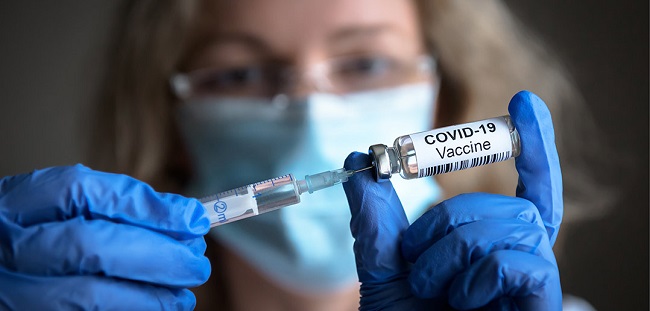Some people experience soreness, exhaustion, or fever after receiving the COVID-19 vaccine, but these reactions are uncommon and typically moderate.
A limited percentage of persons who received the COVID-19 vaccine in February 2021 experienced a rare blood illness known as immune thrombocytopenia (ITP).

Contents
A Few Covid Vaccine Recipients Developed a Rare Blood Disorder
This sparked discussion on the possible connection between ITP and the Pfizer and Moderna COVID-19 vaccines, which was published in a commentary in the February 2021 issue of the American Journal of Hematology.
The researchers speculated that the vaccine could be to blame for ITP, but cautioned that additional information was needed to draw firm conclusions.
So, given the enthusiasm for COVID-19 vaccines and the gravity of ITP, how concerned should you be about contracting ITP after receiving a COVID-19 vaccine? What follows is essential information.
Read Also:
- Alzheimer’s Drug Poses a Dilemma for the F.D.A.
- Does Apple Cider Vinegar Make Your Vag Taste Good
- What can I Add to My Hand Sanitizer to Make it Smell Better
Thrombocytopenia Due to Immune Mechanisms: What Is It?
Medically, a low platelet count is referred to as thrombocytopenia. According to the NHLBI, thrombocytes (also known as platelets) are a type of blood cell that aids in the clotting of blood. Thrombocytopenia can be either acute or chronic, and its causes vary depending on the type.
As reported by the National Heart, Lung, and Blood Institute (NHLBI), people with immune thrombocytopenia (ITP) have abnormally low platelet counts because their immune systems are attacking and destroying their own platelets.
Leading expert James Bussel, MD, professor emeritus of paediatrics at Weill Cornell Medicine in New York City, and a pioneer in the field, explained the phenomenon as follows: “What happens is that, for an unknown reason, your immune system makes antibodies to platelets,” with the caveat that several possible explanations exist. Dr. Bussel noted that this phenomenon has also been observed with other vaccines.
Dr. Bussel noted that the normal range for platelet counts is between 150,000 and 450,000 per microliter of blood.
It is possible to have a platelet count that is far below normal and show no signs of illness. Dr. Bussel noted, however, that bruising and bleeding are typical when platelet counts drop low enough to cause symptoms.
Petechiae are tiny, reddish-purple patches that can occur on the skin. Heavy periods, nosebleeds, and oral bleeding are also possible.
Fortunately, Dr. Bussel noted that intravenous immunoglobulin and/or steroids are usually effective in treating this condition.
How did COVID-19 Vaccines Come to be Associated with Immune Thrombocytopenia?
It has been made clear by the US Food and Drug Administration (FDA) that anybody can use the federal government’s Vaccine Adverse Event Reporting System to report adverse events that occur after someone is vaccinated. This includes doctors, patients, their families, and state immunisation Programmes (VAERS.)
Information submitted to the VAERS is reviewed by both the Food and Drug Administration and the Centers for Disease Control and Prevention. While vaccines are on the market, the FDA will use the reporting system as a “useful tool” to monitor patient safety. The VAERS had received 36 reports of ITP related to the Times article.
Only 19 of the submissions to VAERS were “obvious cases” of ITP, Dr. Bussel told Health in February 2021. These incidents occurred in both COVID-19 factories and did not appear to be related to either gender or age.
The incidence of ITP following COVID-19 immunisation “appears either less than or roughly equivalent to what would be expected if cases were coincidental following vaccination,” Dr. Bussel and colleagues wrote in a commentary published in the American Journal of Hematology.
Assuring You That the COVID-19 Vaccine Is Safe to Use
Severe adverse effects were uncommon and happened at similar rates among trial participants receiving the vaccine or a placebo in clinical trials of the Moderna and Pfizer vaccines, which involved around 30,000 and 44,000 persons, respectively. Thrombocytopenia was not listed as a side effect in either of the two pharmaceutical companies’ study data that was published in the New England Journal of Medicine.
It’s possible that ITP didn’t arise among the 74,000 study participants, but it could surface sometimes when more individuals become vaccinated. Some people will have ITP even if millions are vaccinated, Dr. Bussel stated.
The probability of developing ITP or vaccine-induced thrombocytopenia “is less than 1 in 100,000,” according to the Platelet Disorder Support Association (PDSA), a non-profit patient support group. Pfizer and Moderna vaccines were also associated with a reduced chance of having ITP, according to the PDSA.
Read Also:
- Roger Sperry was Looking for a Cure for Which Disease
- Targeting the Uneven Burden of Kidney Disease on Black Americans
- Women Tend to Reach Higher Bac Levels More Quickly than Men Because:
ITP has been reported in some people who have received the COVID-19 vaccinations, however more study is needed to learn more about this side effect. For instance, a March 2022 study published in Blood Advances indicated that lower platelet counts, younger age, and the current ITP treatment were all risk factors for developing ITP after receiving a COVID-19 immunisation.
Even so, the likelihood of contracting ITP appears to be significantly lower than the likelihood of contracting COVID-19. Dr. Bussel emphasised that this finding should not be used to discourage vaccination. Additionally, “they should talk to their doctor if they have any doubts.”
The PDSA further suggested that patients who have ITP speak with their haematologist or another physician before getting vaccinated.



